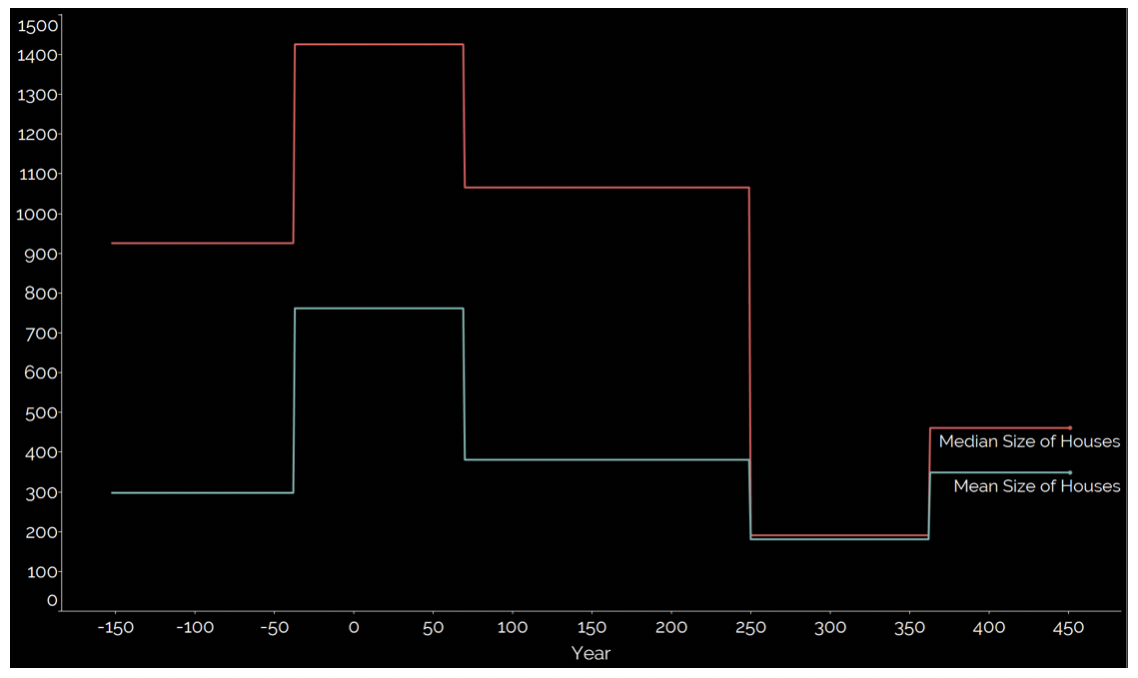
Did Jesus talk about debt? The Bible talks about it: the Torah has a considerable amount of material about debt and debt remission. Proverbs has warnings about it, and Paul seems to have at least one comment discouraging it, but by and large debt is not considered an important part of Jesus' message.
But Jesus did talk about debt, and what he said about it was not a side message, it was a major theme. And why should debt not be one of the themes of Jesus? After all, there's good reason to believe that the theme goes back as far as the Garden of Eden…
Photo Credit: ©Getty Images/fizkes

1. Beguiled and Indebted
"The Serpent Indebted Me"
After the woman and the man ate from the Tree of the Knowledge of Good and Evil, God sought them out and inquired about this violation:
"Then the LORD God said to the woman, "What is this you have done?" And the woman said, ‘The serpent deceived me, and I ate.’" (Gen. 3:13 NAS)
In Hebrew, the word usually translated as 'deceived or 'beguiled' is defined by the Holladay Lexicon as: give one false hope… trick, deceive…
The BDB Lexicon includes a definition, at least in certain conjugations, which focuses on debt/lending: lend on interest, or usury, be a creditor, postpone, delay; sell on credit…
The Hebrew word for what the woman said the serpent did to her typically means to deceive, but a different conjugation implies indebtedness. In addition, the noun form of the word also refers to debt, per BDB.
In what sense did the serpent indebt the woman? I think the answer to that is probably very complex, but the existence of some sort of debt aspect to the fall of man is consistent with later biblical commentary on redemption, in fact, the idea of redemption itself automatically comports with a debt theme. Long association of words such as redemption with religious sensibilities has so conditioned us that we become immune to the obvious financial overtones of the act of redemption.
Likewise for the idea of 'ransom.’ Ransoms are paid, often to buy people out of slavery associated with unpaid debts. There is a temptation to treat such ideas as 'only metaphors', but I think such a temptation should be avoided. These categories of thought - indebtedness, redemption, ransom - are fundamental characteristics of human nature and of our relationship with God. In some sense, the merely financial uses of these ideas are the metaphors, the extension of an original idea to something else.
This understanding of the meaning of beguiled/indebted in Genesis 3 fits well with the rest of the Torah. For example, the system of calendrical debt forgiveness, property restoration and rest found in the Shemitah and Jubilee laws, are quite consistent with these themes.
Adam and Eve were exiled from their home (the Garden), in which they would eat without having to plan (it was already a mature garden) and (as I have argued above) indebted. The Shemitah/Jubilee system returns people to their homes/property, allows them to eat freely without labor and releases them from debt. It ritualizes the eventual reversal of the effects of the tragic events of Eden. That both places debt as an important issue and retroactively helps to shed light on the original story of the garden.
Photo Credit: ©Unsplash-Advait-Berde

2. Torah And Debt Release
Let's take a closer look at the Torah debt remittance rules.
"At the end of every seven years you shall grant a remission of debts. And this is the manner of remission: every creditor shall release what he has loaned to his neighbor; he shall not exact it of his neighbor and his brother, because the LORD's remission has been proclaimed. From a foreigner you may exact it, but your hand shall release whatever of yours is with your brother. However, there shall be no poor among you, since the LORD will surely bless you in the land which the LORD your God is giving you as an inheritance to possess, if only you listen obediently to the voice of the LORD your God, to observe carefully all this commandment which I am commanding you today. For the LORD your God shall bless you as He has promised you, and you will lend to many nations, but you will not borrow; and you will rule over many nations, but they will not rule over you. If there is a poor man with you, one of your brothers, in any of your towns in your land which the LORD your God is giving you, you shall not harden your heart, nor close your hand from your poor brother; but you shall freely open your hand to him, and shall generously lend him sufficient for his need in whatever he lacks. Beware, lest there is a base thought in your heart, saying, 'The seventh year, the year of remission, is near,' and your eye is hostile toward your poor brother, and you give him nothing; then he may cry to the LORD against you, and it will be a sin in you. You shall generously give to him, and your heart shall not be grieved when you give to him, because for this thing the LORD your God will bless you in all your work and in all your undertakings. For the poor will never cease to be in the land; therefore I command you, saying, 'You shall freely open your hand to your brother, to your needy and poor in your land.'" (Deut. 15:1-11 NAS)
The word 'creditor' is the same word root as the word used in Genesis 3. There is also a paradox in the passage in which God says that there will no longer be poor with Israel, and then shortly thereafter says that there will always be poor among with Israel.
The two statements do not constitute a contradiction, however, because they are both conditionals. IF Israel obeys, then there will be no poor among them. But they will not obey and so the poor will always be with them. And this brings us to Jesus, who clearly is alluding to this passage in Matthew 26, 'The poor you shall always have with you'. More on that below.
Let's take a look at the parallel passage in Leviticus 25:
The LORD then spoke to Moses at Mount Sinai, saying, “Speak to the sons of Israel, and say to them, 'When you come into the land which I shall give you, then the land shall have a sabbath to the LORD. 'Six years you shall sow your field, and six years you shall prune your vineyard and gather in its crop, but during the seventh year the land shall have a sabbath rest, a sabbath to the LORD; you shall not sow your field nor prune your vineyard. 'Your harvest's aftergrowth you shall not reap, and your grapes of untrimmed vines you shall not gather; the land shall have a sabbatical year. And all of you shall have the sabbath products of the land for food; yourself, and your male and female slaves, and your hired man and your foreign resident, those who live as aliens with you. Even your cattle and the animals that are in your land shall have all its crops to eat. You are also to count off seven sabbaths of years for yourself, seven times seven years, so that you have the time of the seven sabbaths of years, namely, forty-nine years. You shall then sound a ram's horn abroad on the tenth day of the seventh month; on the day of atonement you shall sound a horn all through your land. You shall thus consecrate the fiftieth year and proclaim a release through the land to all its inhabitants. It shall be a jubilee for you, and each of you shall return to his own property, and each of you shall return to his family. You shall have the fiftieth year as a jubilee; you shall not sow, nor reap its aftergrowth, nor gather in from its untrimmed vines. For it is a jubilee; it shall be holy to you. You shall eat its crops out of the field. On this year of jubilee each of you shall return to his own property.… 'Do not take usurious interest from him, but revere your God, that your countryman may live with you. You shall not give him your silver at interest, nor your food for gain.’” (Lev. 25:1-13, 36-37 NAS)
Leviticus places strong emphasis on sevens and sabbaths. The system of seven years and of seven sets (or 'weeks’) of seven years is important and it is linked both to debt (vs. 37) and to atonement and to a reversal of exile from home.
This theme continues in the prophets.
Photo Credit: ©Unsplash/Gaetano-Cessati

3. Debt, Exile, and the Prophet Daniel
The prophet Jeremiah, who predicted the Babylonian captivity, associates it with the number seven.
“And this whole land shall be a desolation and a horror, and these nations shall serve the king of Babylon seventy years. Then it will be when seventy years are completed I will punish the king of Babylon and that nation,' declares the LORD, 'for their iniquity, and the land of the Chaldeans; and I will make it an everlasting desolation.” (Jer. 25:11-12 NAS)
The author of Chronicles refers back to the prophet's words, and makes explicit, what is subtle in the original prophecy, the connection with the Shemitah system is made explicit in Chronicles.
‘Therefore He brought up against them the king of the Chaldeans… And those who had escaped from the sword he carried away to Babylon; and they were servants to him and to his sons until the rule of the kingdom of Persia, to fulfill the word of the LORD by the mouth of Jeremiah, until the land had enjoyed its sabbaths. All the days of its desolation it kept sabbath until seventy years were complete. (2 Chr. 36:17, 20-21 NAS)
Daniel takes that idea and extends it further:
Daniel's Extension to Seventy Sevens
The prophet Daniel lived in the exile situation which Jeremiah had predicted. God revealed to him that the period of exile would not be just seven, but seventy times seven.
"In the first year of Darius the son of Ahasuerus, of Median descent, who was made king over the kingdom of the Chaldeans--in the first year of his reign I, Daniel, observed in the books the number of the years which was revealed as the word of the LORD to Jeremiah the prophet for the completion of the desolations of Jerusalem, namely, seventy years… "Seventy weeks (שָׁבֻעִ֙יםשִׁבְעִ֜י) have been decreed for your people and your holy city, to finish the transgression, to make an end of sin, to make atonement for iniquity, to bring in everlasting righteousness, to seal up vision and prophecy, and to anoint the most holy place…." (Dan. 9:1-2, 24 NAS)
Even if you cannot read Hebrew, it's not hard to see that the Hebrew words paired above are almost exactly the same word. In other words, 'weeks' is 'seven'. Literally, this is 'seventy sevens'. This puts Jesus' statement to Peter about forgiving 'seventy times seven' in a new light (or actually in a very old light).
The prophet Isaiah takes this theme, release of debt captives, a Jubilee theme and associates it with the coming Messiah.
“The Spirit of the Lord God is upon me, Because the LORD has anointed me To bring good news to the afflicted; He has sent me to bind up the brokenhearted, To proclaim liberty to captives, And freedom to prisoners; To proclaim the favorable year of the LORD, And the day of vengeance of our God; To comfort all who mourn. (Isa. 61:1-3 NAS).
Note how the liberty of captives harkens back to Leviticus, thereby aligning debt forgiveness, end of exile and the Messiah:
“And if a countryman of yours becomes so poor with regard to you that he sells himself to you, you shall not subject him to a slave's service. He shall be with you as a hired man, as if he were a sojourner; he shall serve with you until the year of jubilee. He shall then go out from you, he and his sons with him, and shall go back to his family, that he may return to the property of his forefathers.” (Lev. 25:39-41 NAS)
Photo Credit: ©Thinkstock/manop1984

4. How the Pharisees Abused Debtors
As we've seen, Israel was sent into exile for failing to follow the Shemitah/Jubilee laws. Did the ruling class of Israel learn its lesson after having been sent back to Israel? Having been forgiven their debt (their obligation to God to honor these rules), did they turn around and forgive the debtors, the poor in their economy? No, like the Ungrateful Servant in Jesus' parable, they circumvented the law and insisted on being paid.
According to Alfred Edersheim's comprehensive book The Temple, not long before the time of Jesus, scribes and lawyers created a workaround:
"Rabbi Hillel… devised a formula called 'prosbul' (probably 'addition,' from a Greek word to the same effect), by which the rights of a creditor were fully secured. The Prosbul ran thus : 'I, A. B., hand to you, the judges of C. D. (a declaration), to the effect that I may claim any debt due to time at whatever time I please.' This 'Prosbul,' signed by the judges or by witnesses, enabled a creditor to claim money lent even in the sabbatical year. (Mish Shev, sct x.) and though professedly applying only to debts on real property, was so worded as to cover every case.’" (Edersheim, pg. 191-192)
Nicholas Perrin, in Jesus the Temple, makes the same point:
"According to the Mishnah (Sheb. 10:3), the prosbul was enacted by Hillel (first century BCE) to counter the provision in the Torah for cancellation of debts every seven years (Deut 15:1-18; also Exod 21:2-6; 23:10-11; Lev 25:2-7). It was a legal fiction that assigned the loan to the court to collect a debt… ("A prosbul-loan is not cancelled [by the seventh year] (m. Sheb. 10:3)).
The point is also documented by Professor David Fiensy in his excellent Christian Origins and the Ancient Economy:
"The papyrus text from Wadi Muraba'at… dating from the year 56 CE, may illustrate the application of the prosbul. Goodman maintains that the prosbul would have been necessary only for rich people lending to poor ones. Rich persons lending to other rich persons could count on repayment because of the pressures of social stigma and thus would not need special legislation. Goodman assumes that many peasants would have been unable to repay the loans and thus would have faced foreclosure on their farms." (Fiensy, pg 62)
Everything in points 1 through 4 presents a rich historical and cultural background against which to understand the teachings of Jesus which pertain to debt, and debt forgiveness and the consequences of neglecting the latter…
Photo Credit: ©Thinkstock/upershabashnyi

5. Jesus’ Public Ministry Began with Debt Forgiveness
Jesus' first public pronouncements about his life and ministry are explicitly tied to the prophetic promise of the coming Jubilee:
“And the book of the prophet Isaiah was handed to Him. And He opened the book, and found the place where it was written, ‘The Spirit of the Lord is upon Me, Because He anointed Me to preach the gospel to the poor. He has sent Me to proclaim release to the captives, And recovery of sight to the blind, To set free those who are downtrodden, To proclaim the favorable year of the Lord.’ And He closed the book, and gave it back to the attendant, and sat down; and the eyes of all in the synagogue were fixed upon Him. And He began to say to them, ‘Today this Scripture has been fulfilled in your hearing.’” (Lk. 4:17-21 NAS)
Let's not let that announcement pass by without proper emphasis. Jesus could have started with many things, but he started with Isaiah's announcement that Israel would be restored from exile and would honor the debt forgiveness laws of the Torah.
This would not have surprised those seated before him, that a prospective Messiah would think of himself as fulfilling that role. Perrin's book, Jesus the Temple, makes clear that messianic speculation was closely connected with both end-of-exile themes and recovery of Torah obedience on the matter of debt remittance. The people knew that the law was being violated. They knew that the exile had been due at least partially to disobedience to those rules. They knew that there was a period of 490 years associated both with the coming of Messiah and with the end of exile and with the violation of Shemitah rules, and they had calculated that this 490 year period was about to come due.
Israel, at least non-elite Israel, was longing for a Messiah who would see that debts were properly forgiven and thus end Israel's exilic status as a vassal of Rome. Jesus knew what he was quoting, what its context was and what it would have meant to those sitting there. To quote that passage without heavily hedging it, would be to invite misunderstanding, unless Jesus did indeed mean to make debt remission an important part of his teachings.
If there was any doubt about that, that doubt should be cleared up as we see Jesus bring up the debt issue in his first major large public address, the famous Sermon on the Mount…
Photo Credit: ©GettyImages/Kardd

6. Jesus Makes Debt Forgiveness Central to Prayer
Jesus' Sermon on the Mount also included his only presentation of a model prayer, which includes the following:
"And forgive us our debts, as we also have forgiven our debtors." (Matt. 6:12 NAS)
There is a strong tendency to spiritualize this message, to treat it as referring to something different from the Torah treatment. The problem with this is that Jesus' word choice is reminiscent of the language of the Greek translation of the Old Testament. The words for forgiveness (or release) of debts parallel the words used in the debt forgiveness/Shemitah passage in Deuteronomy 15.
YLT Matthew 6:12 'And forgive us our debts, as also we forgive our debtors
BGT Matthew 6:12 καὶ ἄφες ἡμῖν τὰ ὀφειλήματα ἡμῶν, ὡς καὶ ἡμεῖς ἀφήκαμεν τοῖς ὀφειλέταις ἡμῶν·
YLT Deuteronomy 15:2 and this is the matter of the release: Every owner of a loan is to release his hand which he doth lift up against his neighbour, he doth not exact of his neighbour and of his brother, but hath proclaimed a release to Jehovah
BGT Deuteronomy 15:2 καὶ οὕτως τὸ πρόσταγμα τῆς ἀφέσεως ἀφήσεις πᾶν χρέος ἴδιον ὃ ὀφείλει σοι ὁ πλησίον καὶ τὸν ἀδελφόν σου οὐκ ἀπαιτήσεις ὅτι ἐπικέκληται ἄφεσις κυρίῳ τῷ θεῷ σου
Jesus knew that Israel had ignored this rule (or, paid just enough attention to figure out legal loopholes to go back to ignoring it again), and that this carried with it a warning from God: the presence of a permanent underclass.
Photo Credit: ©GettyImages/BartekSzewczyk

7. Israel Ignored Jubilee Law
We're so used to reading the statements of Jesus that to some degree they become dead clichés to us. But when Jesus first said these things, well… those were the first times that he said them. That means that they would be interpreted in terms of the pre-existing context, which was largely a matter of the Old Testament scriptures and historical circumstances extant at the time.
"Now when Jesus was in Bethany, at the home of Simon the leper, a woman came to Him with an alabaster vial of very costly perfume, and she poured it upon His head as He reclined at the table. But the disciples were indignant when they saw this, and said, "Why this waste? For this perfume might have been sold for a high price and the money given to the poor." But Jesus, aware of this, said to them, "Why do you bother the woman? For she has done a good deed to Me. For the poor you have with you always; but you do not always have Me." (Matt. 26:6-11 NAS)
Nicholas Perrin sees it too:
"For when Jesus says, 'You always have the poor with you', he is patently alluding to Deuteronomy, 15:1-11, a passage in which Moses enjoins the seventh year as the year of canceling (shemittah) debts. The section of Deuteronomy is remarkable in its blend of idealism, realism, and pessimism. 'There will be no one in need among you,' so the text promises, 'if only you will obey the LORD your God by diligently observing this entire commandment that I command you today' (vv. 4-5). But 'if there is among you anyone in need,’ the scripture continues on a less confident note, 'do not be hard-hearted or tight-fisted toward your needy neighbor' (v. 7). This point is perhaps already obvious enough given the fact that Jesus and his disciples are being hosted by Simon the Leper, whose sobriquet would have marked him off as 'poor', at least in the social sense." (Jesus The Temple, pg. 134)
This is not controversial; Deuteronomy 15 is listed in the cross-references of at least one well known Bible translation of Matthew 26.
Why would Israel always have the poor with them? As God warned them, they would do so because they would not obey him, with emphasis on debt remission. Again, this may read as odd to modern Christian eyes, which are not nearly as immersed in Old Testament texts as Jesus and his listeners. Our interpretive framework tends to focus on heart attitudes and personal salvation, whereas first-century Israel was aflame with outrage about the lack of debt relief and frenzied with expectation about the coming Messiah and the promise that he would proclaim liberty to the (endebted) captives.
Jesus was right. They would not obey and the poor would always be with them. In fact, the failure to obey God in this matter ended up setting in motion a series of events which plunged the whole region into poverty.
Photo Credit: ©Unsplash/Jordan-Opel

8: The Result: Debt Crisis and Regime Change
It is well known to scholars (but sadly often ignored by preachers and the laity) that within a generation of Jesus' ministry, Jerusalem was destroyed by Roman military forces in response to civil unrest and rebellion.
What is much less well known is that the chain of events began with an act of debt revolt.
"As is well known, Josephus does narrate one clear case of such an event in Palestine. In 66 CE during the Feast of Woodcarrying, the sicarii ("dagger carriers") and others broke forth into the upper city and set on fire the houses of Ananias the high priest and of Agippa I and Bernice. Then the mob turned to the public buildings: After these things, they began to carry the fire to the archives [apxeta], being zealous to destroy the contracts of those who had loaned money and to cancel [aochopsai] the collection of debts. (War 2.427) Josephus speculates at this point that the Sicarii hoped to win to their side a multitude [pleythos;) of debtors." (Fiensy, pg. 65).
Debt had not been at crisis levels during Jesus' time on earth (for more on this see Fiensy, who makes a strong case that debt was not yet at crisis levels), but by the time of AD 66, it appears that debt had risen to crisis levels.
The revolt may have been triggered by the completion of the Temple. Construction had just been completed a year or two before and that involved massive lay-offs. The debt revolt came immediately after the end of a massive building boom.
Not only was Jerusalem destroyed but the waves of violent reactions to violent reactions continued into the next generation.
The Aftermath
How economically destructive was this revolt? Devastating if the archeological record is representative of the history.

You can see the economy booming beforehand, but the destruction of Jerusalem drove home sizes (a good proxy for wealth) downward, and the Bar-Kochba rebellion 132-136 AD drove it down again, where it stayed for hundreds of years.
Jesus’ message was one of personal salvation, but it also included the wisdom necessary to save his nation from destruction. He wept to gather Jerusalem under his wings, to save them as a mother hen saves her chicks from a fire, but they would not listen.
Jerry Bowyer is a Forbes contributor, contributing editor of AffluentInvestor.com, and Senior Fellow in Business Economics at The Center for Cultural Leadership. He has had been a regular commentator on Fox Business News and Fox News. He was formerly a CNBC Contributor, has guest-hosted “The Kudlow Report”, and has written for CNBC.com, National Review Online, and The Wall Street Journal, as well as many other publications. Jerry lives in Pennsylvania with his wife, Susan, and the youngest three of their seven children.
Photo Credit: ©Pixabay-Free-Photos
Originally published Sunday, 24 March 2024.








